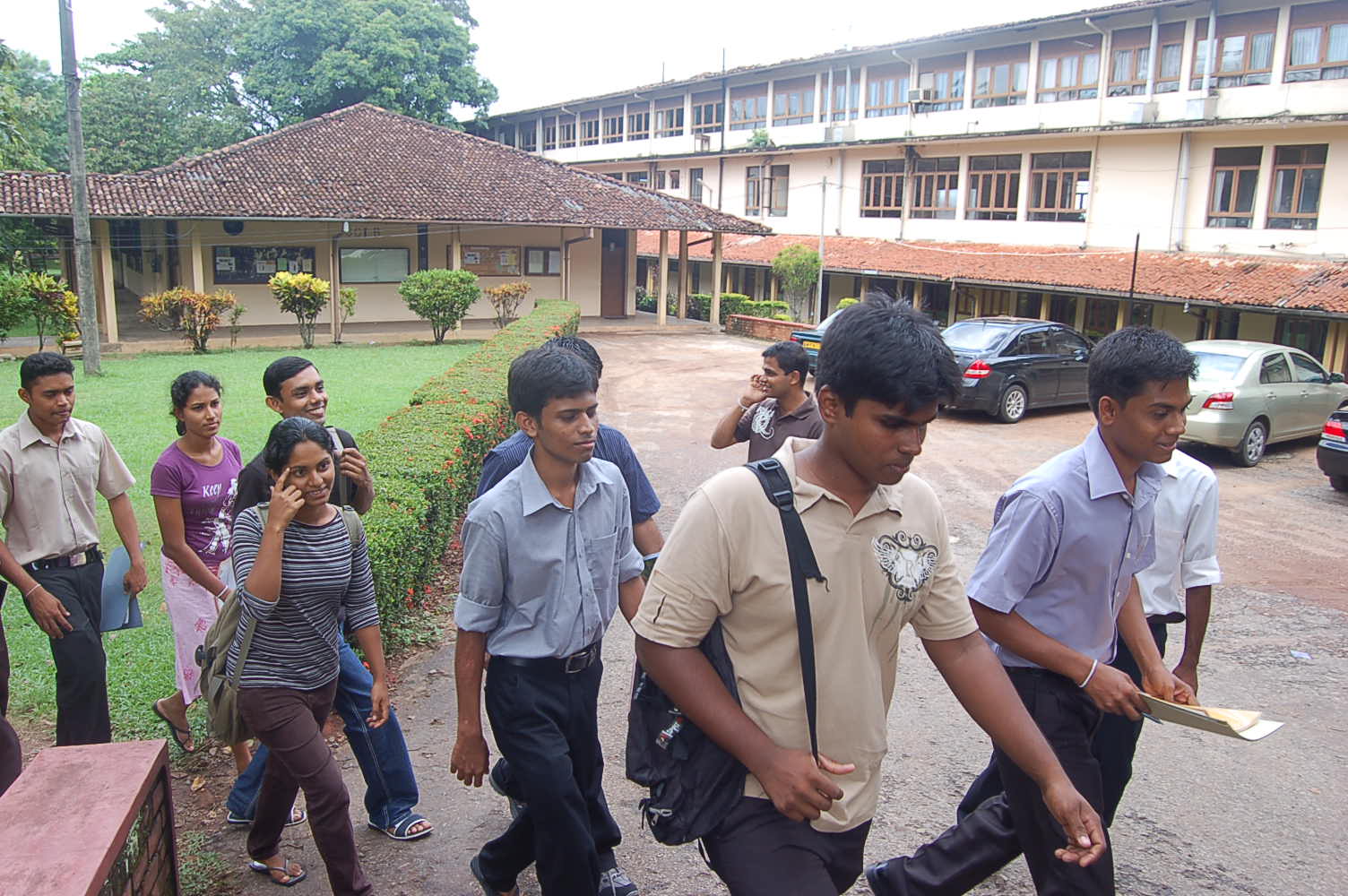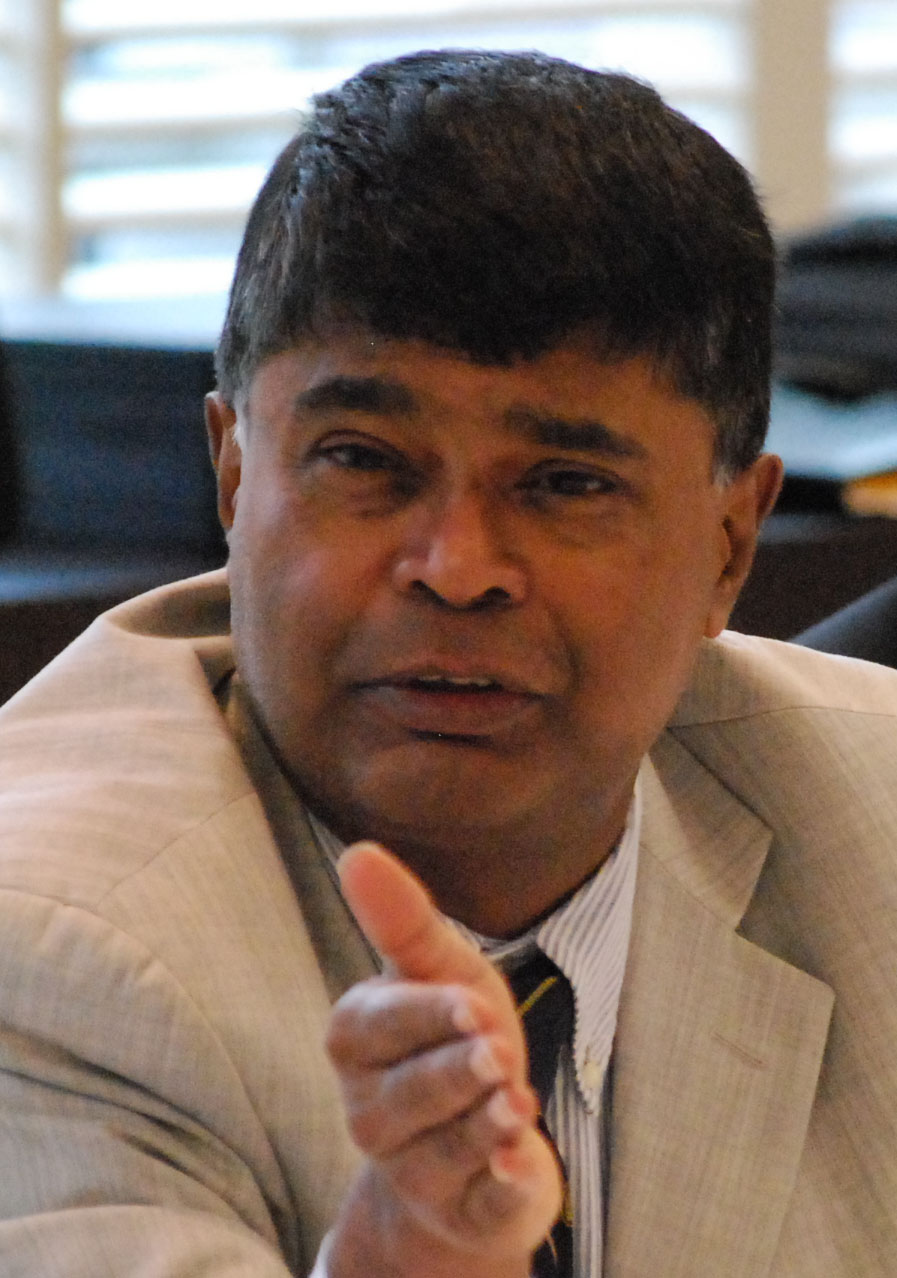I have spent the last few weeks looking at both our parliamentarians and the public service, and these are certainly areas in which reforms are urgently required. At its simplest, we need a public service that works efficiently for the public, rather than for politicians. We need politicians who understand what their responsibilities are, to constituents as well as to the country at large, and who fulfil those responsibilities efficiently and effectively.
But we also need citizens who can contribute actively both to governance and to the development process. For this purpose we need a radical overhaul of our education system, which according to recent studies
- is failing to develop the cognitive skills on large numbers of its graduates. It has also failed to impart several urgently needed technical skills such as the ability to write and communicate clearly in even the mother tongue, let alone English (a recent ILO report)
- at present a large number of students are leaving the school education either at or before GCE OL without obtaining proper knowledge, skills, competencies and qualifications necessary for their lives and world of work (Ministry of Education Discussion Paper 20160404 – 2016)
- not only the structure, but also the contents and delivery of curriculum should be reformed for better relevance to modern society, more focusing on nurturing ability to learn, absorb and apply knowledge rather than learning static knowledge itself (ADB comments on proposals for reform)
- mechanisms to ensure seamless transition between the different branches of education, and to increase the appeal of vocational training, have not been developed (TVEC Policy Paper)
Despite all these universally acknowledged truths, nothing concrete has been done for the last several years. The Ministry of Education decided on 13 years of compulsory education, but failed to complete other stakeholders, and came up with a cackhanded proposal last year, which had to be altered. After it was altered, and Mahinda Samarasinghe, as Minister of Skills Development and Vocational Training, agreed with the Secretary of the Ministry of Education to support the process, the Minister of Education changed track again.
So we had the embarrassing position of the ADB reporting a decision that had been countermanded, as the Director General of the National Institute of Education reported to the National Education Commission – adding that she had not really been consulted about the new plans.
The National Education Commission, which had produced a comprehensive and thoughtful proposal with regard to General Education, discussed the issue at length and decided to raise the relevant issues with the President. But the term of the appointed members of the Commission expired three months ago, and they have not as yet been replaced. So the NEC has not met for ages, at this particularly vital juncture.
I wrote to the President suggesting that he appoint Prof Ethirveerasingham to the Commission, given the splendid work he did in developing a Northern Province Sector Review. Though I tried very hard, when that document was launched three years ago, to get the Ministry of Education to discuss the document, the Minister was not interested. The Secretary was more positive but in the end did nothing. Finally Prof Lakshman Jayatilleke, as Chairman of the National Education Commission, did formally bring it to the attention of other Provincial Ministries of Education, and a brainstorming session was held. But nothing seems to have come of that, and I suspect that, with the NEC in limbo, nothing will.
One problem is that there seems to be no sense of urgency, even in someone as dedicated to better education as Prof Jayatilleke. It took several months for him to convene the brainstorming session after I first brought the Review to his attention, and then there was no follow up at all. I get the impression that even those who can conceptualize have given up the struggle for reform, and are content to make the occasional gesture, and then sit back and wait for someone else to do something – which of course never happens.
Meanwhile the plans for 13 years of education have suffered yet another sea change, with another planning meeting at which it seems the Ministry of Education accepted the fact that vocational training cannot be purely theoretical, and there needs to be effective collaboration with agencies already engaged in practical training. But there seems little effort, in pursuing the idea, to also simultaneously plan for not just more teachers, but teachers who understand the difference between skills development and academic learning.
The Ministry of Education should be aware of the problem, for five years back they ignored it when they introduced the Technological stream at Advanced Level. They did not have enough teachers, and poached several from Technical Training Colleges. This of course did not prove adequate and most areas which could have benefited from Technology training in school were not involved in the programme. Subsequently the Colleges wanted the teachers back, and though there have been some efforts to produce more teachers, a programme which should have been expanded is now merely limping along – and the problem is compounded by the failure at the time to develop clear career paths for those who were successful in Technology at the Advanced Level.
We tried after Mahinda Samarasinghe became Minister to provide some remedies for the problem, in that we have now started Technology and Education Diploma courses in several Colleges of Technology. Developing the curricula however took time, and the process really took off when our brilliant German consultant got involved. He also introduced radical changes in the pedagogy to be adopted, so that at last we hope we will several teachers who will focus more ‘on nurturing ability to learn, absorb and apply knowledge rather than learning static knowledge itself’, as the ADB indicated is essential.
The Vocational Training Sector can only deliver the curricula in Technology and also in English, where the dedicated Training Unit at the Department of Technical Education and Training have begun the course in ten centres islandwide. Or rather, I should say eight, since what should be flagships, Colombo and Kandy, have proved useless. Colombo has not started the programme at all, while Kandy, having first repudiated the idea so the keenest of students had to go to Kurunagala (which is doing marvelously) started late, and completely ignored the syllabus.
Typical of what happens when graduates who cannot think are appointed straight away to think is what was inflicted on the poor students. The coordinator spent ages dictating the curriculum to them, instead of telling them it was available on the website. He also failed to inform the Literature teacher of the syllabus, so that worthy old gentleman got the students to copy down poems he had taught for the Ordinary Level a quarter of a century ago, and taught students what they should think and say, in typical school fashion (for this country) instead of encouraging thought and self-expression.
And another member of permanent staff dictated to students a list of words they should not use with ‘very’: thus they were enjoined to say ‘atrocious’ instead of ‘very bad’ and ‘jubilant’ instead of ‘very happy’ and ‘vulgar’ instead of ‘very rude’ and ‘quick’ instead of ‘very fast’. There were 31 such examples, which suggests that Peradeniya, from where this particular specimen hailed, is of a piece with the Ministry of Education in ‘failing to develop the cognitive skills on large numbers of its graduates’.
All this suggests the urgency of the approaches Prof Markus Boehring has outlined in his curriculum. Meanwhile the innovative Chair of the Academic Affairs Board of the National Institute of Education (who told me that, over a decade after I first suggested it when I was in that position, he had been able to change the structure of the Ordinary Level Maths paper) helped us draft a curriculum for Working Mathematically and Education.
I brought this to the attention of the Secretary to the Ministry of Education, and he arranged to meet to discuss how they could make use of this if it fitted in with their priorities. Unfortunately he had to deal with the Dambulla crisis on the date he had fixed, but I met the State Secretary, and the brightest of the Additional Secretaries who is responsible for this area.
They were very positive, and the lady obviously also feels strongly about problems in the present system: when I noted that we were unique in wasting three months during the best years of a young person’s life (since children are deprived of schooling after the Ordinary Level, which is when they tend to pick up destructive habits, ranging from loitering at three wheeler parks to going to tuition), she noted that it was five.
But despite understanding the problem and how our proposals might help in providing solutions, they have not come back to me though they promised to do so in a couple of weeks. I wrote to remind them, but there was no response so it was necessary to write to the Secretary again. But I suspect that this initiative, like so many others, will flounder because there is no sense of urgency.
It is also clear that the Ministry will do nothing about specifying achievement levels for junior and senior secondary education. I submitted a draft to the NEC, which welcomed it but then did not take things further. The ADB also welcomed my initiative, and indeed had taken on the problem themselves, in that their comments on the Ministry Discussion Paper had noted that ‘The first step would be establishing the competency standards for students for 21st century skills as many comparator countries (i.e., Vietnam) did. But in that regard too the Ministry does not seem to have moved.
What is wrong? I was impressed by the quality of many of those I met at the meeting in the State Secretary’s office, and indeed recalled some of them from my own stint at the Ministry when Tara de Mel – who is still universally admired – was the Secretary. But though the new Secretary is capable, the will to move swiftly is lacking, and I fear that once again reforms will be too slow and hamfisted to have any real effect. And meanwhile thousands of students suffer, as does the country since, as the Ministry itself grants, they do not have ‘proper knowledge, skills, competencies and qualifications necessary for their lives and world of work’.
From Rajiva Wijesinha’s website https://rajivawijesinha.wordpress.com/








